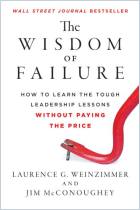
The Stupidity Paradox
The Power and Pitfalls of Functional Stupidity at Work
Recommendation
Organizational experts Mats Alvesson and André Spicer make a strong case about the dangerous prevalence of “functional stupidity” in organizations. They provide iconoclastic, intriguing insights on functional intelligence and its absence. The authors outline specific steps companies can take to transform from being stupid to being smart. Their detailed presentation offers many revealing case histories to bolster their argument – although they fail to address how, with all the organizational dumbness they identify, corporations are able to develop products, like smartphones, that transform consumers’ lives. Nevertheless, getAbstract recommends their clever program for helping smarten up your management and boost your organization’s well-being.
Summary
About the Authors
Mats Alvesson is professor of business administration at the University of Lund, Sweden. André Spicer is professor of organizational behavior at Cass Business School, City University, London.


















Comment on this summary